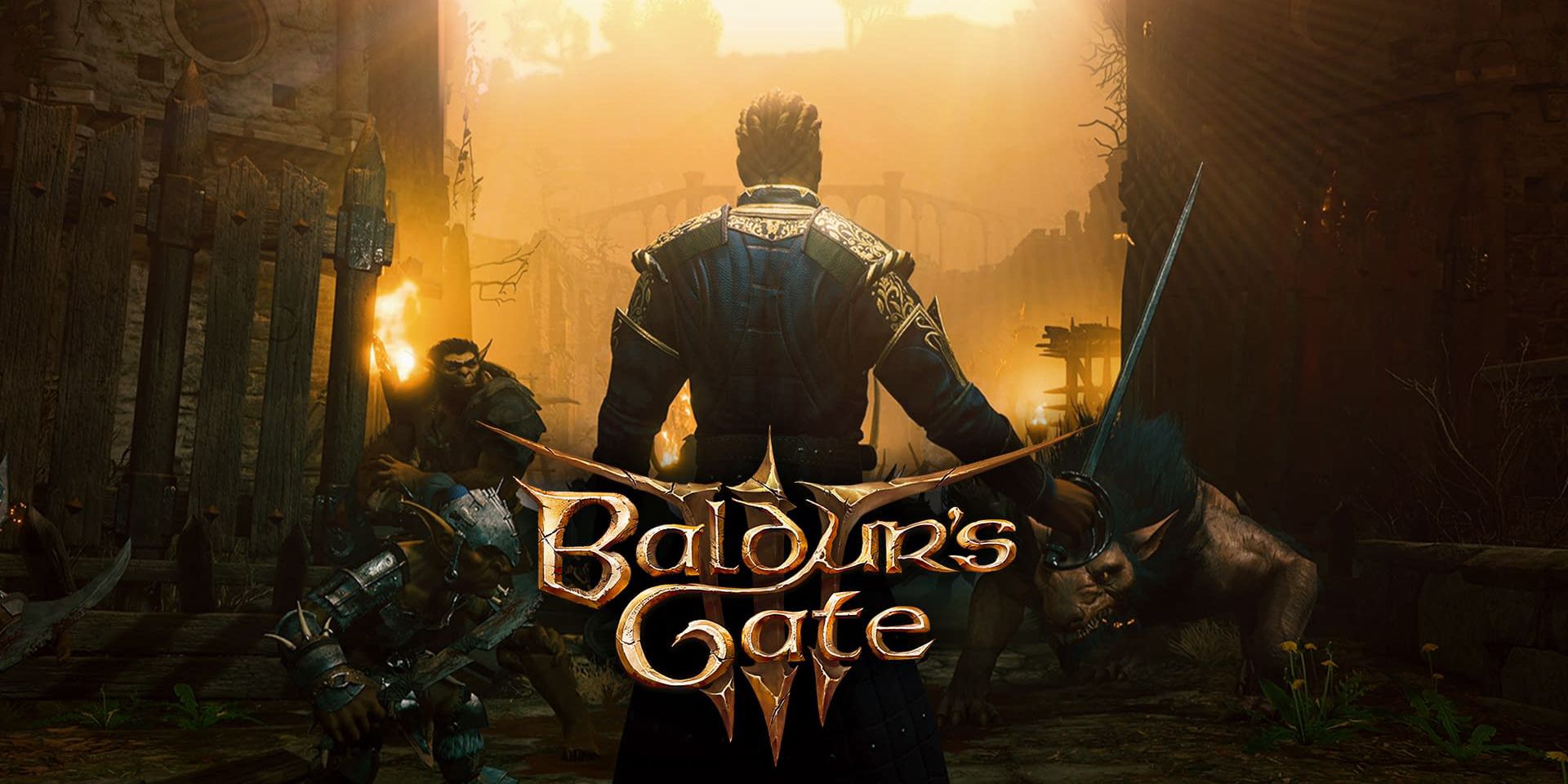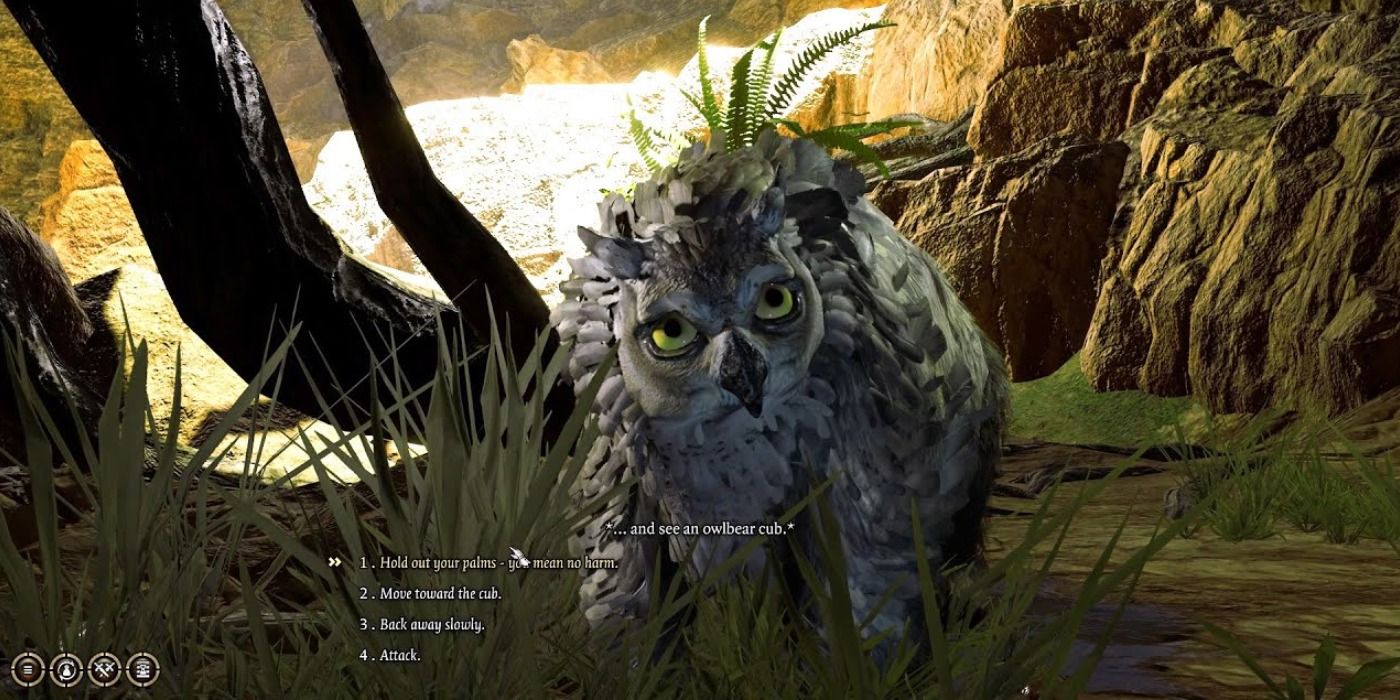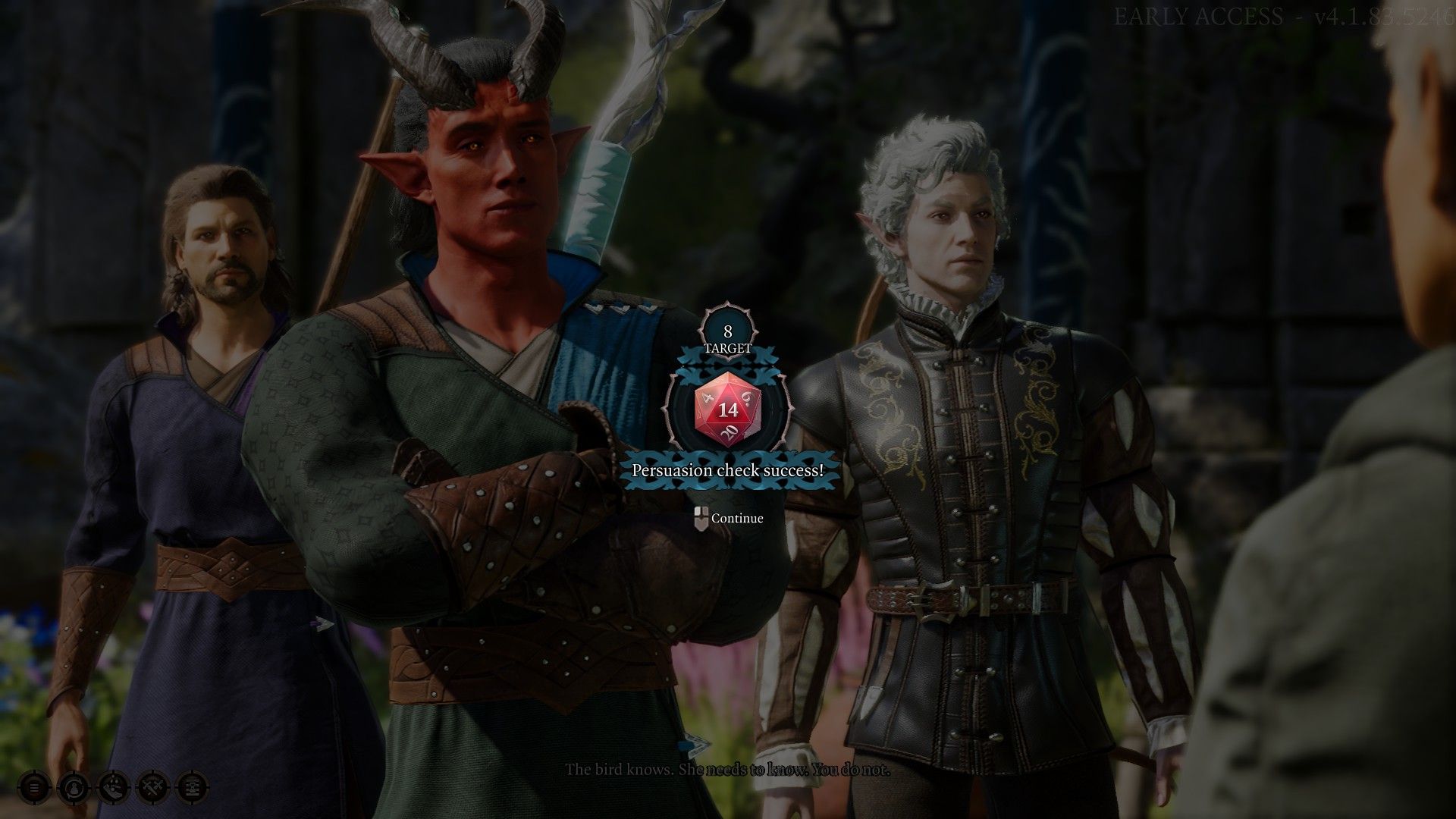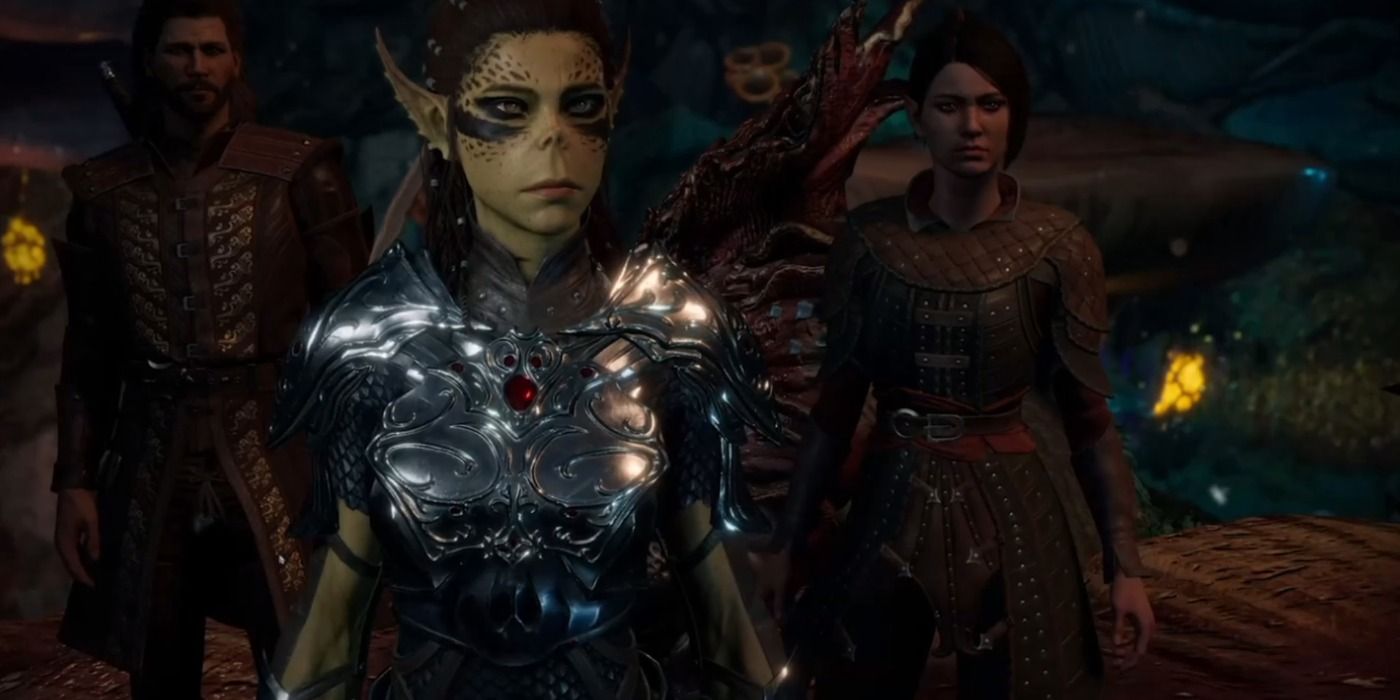The early access version of Baldur's Gate 3 shows a lot of promise, deftly translating the tabletop rules for Dungeons & Dragons 5th Edition to a video game format while preserving the thrill, improvisation, and sheer chicanery which makes classic D&D so great. As they continue development on Baldur's Gate 3, developers at Larian Studios, the makers of the Divinity: Original Sin series, will need to both improve the game's visual qualities, add more depth to the main characters earlier on, and refine the game's storytelling so that players have more freedom to tell the stories they're interested in.
In a tabletop Dungeons & Dragons campaign, there are several key principles that Dungeon Masters must keep in mind if they want to entertain their players and make the world they've built come alive. First, the players and their characters are the ones who need to shape the story in a game of D&D; a Dungeon Master who "railroads" and tries to force their cool new story ideas onto players is having fun at their expense. Similarly, a "Munchkin" D&D player character who antagonizes, bullies, or refuses to work with their fellow party members winds up ruining the gaming experience for everyone. Lastly, a good Dungeon Master should always reward players for lateral thinking, genuinely clever ideas, and non-violent problem solving, particularly if they don't want their game to devolve into a story about a wandering group of "murder hobos".
By setting themselves the task of converting the rules for Dungeons & Dungeons 5th Edition into video game mechanics for Baldur's Gate 3, Larian Studios has also saddled themselves with the responsibility of being good Dungeon Masters, creating a flexible, creative simulation where people can feel free to, well, roleplay. Their own in-house Divinity: Original Sin RPG franchise is famous for having quests with multiple endings and a turn-based combat system that rewards creativity and exploration, elements which are both very much on display in the Baldur's Gate 3 Early Access. Going forward, Larian Studios have the chance to build on their current accomplishments with the following gameplay tweaks:
Baldur's Gate 3 Should Reward Players For Non-Violent Problem Solving
Alongside the usual list of attack menu actions such as Cleave, Throw, and Shove, there's a special attack option during combat in Baldur's Gate 3 called "Knock Unconscious," which lets players make a special attack that knocks critically injured foes unconscious instead of killing them. Currently, this non-lethal method for resolving combat seems to exist mainly for flavor in the early access; a knocked-out opponent never gets up, coughs up information, or behaves differently from a dead body. Given how many assets and features are still unpolished in the Baldur's Gate 3 early access, it's likely future versions of the game will let players do more with the "Knock Unconscious" action: interrogate prisoners, reconcile with former foes, redeem bandits and set them on a better path to life, etc.
In general, Baldur's Gate 3 early access seems to be geared towards testing out movement, combat mechanics, and general quest narratives, at the cost of nuanced character interaction and non-violent solutions to in-game problems. There are moments where a well-rolled skill check can bypass the need for combat and killing, but these successful checks don't grant players any XP (Experience Points), creating a perverse incentive to always go the violent route.
For years, Dungeon Masters in tabletop D&D have made a point of granting "Roleplaying XP", special experience points awarded to players who portray their character with authenticity, devise non-violent solutions to problems, or other actions that emphasize the R in RPG. Would a roleplaying XP system like this address the asymmetric focus on combat in the current version of Baldur's Gate 3? Or would a quest-based experience system as seen in the Pillars of Eternity isometric RPGs better encourage players to pursue the problem-solving method which pique their interest?
Baldur's Gate 3 Shouldn't Punish Players For Good Dice Rolls (Or Let Bad Rolls Halt The Action)
The recent surge in RPGs which emphasize narrative storytelling over mechanical complexity has inspired as lot of discourse among Dungeons & Dragons players and other tabletop hobbyists over when players should roll dice and what the possible outcomes of these skills rolls should be. The general consensus? Whenever a player rolls dice, something interesting should happen, particularly if they roll low.
A classic example cited among roleplaying game designers is the "Lockpicking" scenario, where a player in an RPG rolls dice to see how well their character can pick a lock. In the default rules of D&D, a high roll means a character can pick the lock while a low roll means they simply don't succeed, a scenario which can be both boring and frustrating. It's much more interesting if a failed skill roll gets players in trouble (the character takes too long and a guard stumbles across them) or they succeed with a cruel twist (the character picks the lock to the door, but there are zombies lurking on the other side).
There are a few instances in the Baldur's Gate 3 Early Access game where successful skill checks and saving throws lead to negative consequences, while failed rolls wind up shutting down certain lines of inquiry. By more consistently applying the RPG principle of "even failures move the story forward" to skill checks in the Baldur's Gate 3, developers at Larian Studios can enhance the gaming experience of players by making success and failure equally fun – a feature which would encourage players to go along with the ups and downs of their gaming experience rather than "save-scumming" to get things just right.
Party Members In Baldur's Gate 3 Should Be Team Players, Even As They Bicker
The core party characters in the early access for Baldur's Gate 3 – a priestess of an evil god, a devil-bargaining warlock, a xenophobic knight, a wizard with a time tomb in hischest, and a roguish vampire – are people who would never get along with or associate with each other in a million years, were it not for their common goal of getting rid of the parasitic tadpoles in their skulls threatening to transform them into Mind Flayers. During the earlier parts of the early access, this ragtag party can barely keep themselves from going for each other's throats (including the vampire), with moments where the more morally ambiguous party member actively express an interest in harming or killing each other.
Events in the first act of Baldur's Gate 3 hints at fascinating future story arcs where this group of scoundrels and desperate survivors mature into a diabolical band of villains who cast darkness over the land of Faerûn... where their shared experiences, suffering, and desire not to turn into Mind Flayers inspires them to care for others and become heroes of the Forgotten Realms. To properly foreshadow these potential turns of events, the next iteration of Baldur's Gate 3 needs to portray the characters in a more nuanced fashion early on, showcasing the noble qualities which could make them heroes to balance out their more visibly callous, self-serving qualities.




